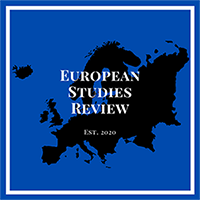By Olivier de Bolster
On 17 June, the Kurdish community mourned the death of a volunteer at the pro-Kurdish HDP headquarters in Turkey’s third-largest city Izmir. The culprit’s claim of acting as a lone wolf has been met with outright skepticism from the opposition. However, supposed links with the ultranationalistic Gray Wolves movement on his social media seem to further embolden their claim. The shooting comes merely a week after the Turkish top prosecutor launched a second attempt to de facto ban the HDP altogether based on so-called allegations regarding links with the outlawed Kurdish separatist PKK movement. These renewed attacks are just the latest cases in what has become a government-led crackdown against Turkey’s 2nd largest opposition party.
For decades the Turkish state has been unable to reconcile its nationalist undercurrent with its sizeable Kurdish minority. The animosity, however, is a quite modern phenomenon, which only occurred in the final days of the Istanbul Caliphate. As in many multi-ethnic empires of old, the specter of nationalism wreaks havoc in the weakened Caliphate, forcibly imposing a one-fits-all national identity on its diverse populace. Kurds were subjected to forced assimilation during the interbellum. They saw their cultural rights being squashed under the hammer of Turkish nationalism. The Kurdish tongue was outlawed. Kurds were classified as ‘Mountain Turks’. Kemalists even went as far as to forbid the usage of Kurdish names. Turkey was dead set on uprooting the Kurdish ethnic identity.
Why was Turkey dead set on forced assimilation? One should compare an ethnic chart of the 20th century Ottoman empire with present-day Turkey. The Armenian presence in Eastern Anatolia has been completely eradicated, whereas the millennia-old Greek presence in the West completely dissipated. Unlike the stateless Kurds, these historic communities had independent states of their own. Therefore, the Turks relied on policy pogroms and compulsory population exchanges.
The animosity took a grim turn with the launch of the armed insurgency by the PKK in the 1980’s. The overall toll of the conflict is morbid. Thousands of deaths, high economic costs, hundreds of thousands displaced and, arbitrary arrests riled the Kurdish South-East.
The launch of the Solution Process represented the most tangible prospect of resolving the decades-old conflict. The initial signs were hopeful, despite efforts to derail the talks by opponents from both sides. A cease-fire between both sides offered the much-needed breathing space for the negotiations to be conducted. The Turkish government softened several laws to improve the Kurdish language rights, whereas the PKK laid down their weapons and ended the insurgency under the guidance of their imprisoned leader Abdullah Öcalan. A genuine olive branch was extended.
The aftermath of the 2015 Parliamentary elections marked the demise of the Solution Process. Erdogan’s rapprochement sought to tap into the Kurdish electoral base. The rapprochement proved to be a disaster, as the Kurdish base flocked under the HDP banner of the charismatic Selahattin Demirtaş and robbed him of his parliamentary majority. As his bet failed to materialize, Erdogan turned towards the ultranationalist current, securing a large parliamentary majority in the November snap election.
Kurdish political rights have since then been under siege by the government as elected HDP officials have been removed from office over alleged terrorist allegations. Currently, the Turkish answer to the question has been repression. Yet, paradoxically, it could have the potential to sprout into a lasting resolution of the decades-old question. For that, we must look at Israel. An unholy coalition, consisting out of eight parties, ousted Bibi from power. More importantly, the Islamist Ra’am party holds a crucial seat in the unholy constellation. When a once-in-a-lifetime opportunity presents itself, no gap to bridge is too big in politics.
Erdogan’s weakened hold onto power received a foretaste during the 2019 municipal elections when the opposition managed to wrest the mayoralty from the Islamist AKP in Istanbul and Ankara. Istanbul’s sizable Kurdish base (3.5 million) played a crucial role in handing Erdogan a humiliating defeat through the usage of tactical voting. Beset by the domestic economic crisis, the opposition is gearing towards delivering the final blow to Erdogan’s political career. As polls show a genuine chance of unseating the AKP, the HDP will play a crucial part which could be leveraged in favor of a lasting resolution of the Kurdish Question. The Turkish opposition, however, remains split on the issue as the liberal-conservative IYI party has come out against welcoming the HDP into the electoral alliance. Cryptic messages from party leader Meral Akşener, however, may be viewed as not completely slamming the door on them.
The latest attempt to uproot the Kurdish political representation signifies Turkey’s continued inability to formulate a peaceful resolution to the Kurdish Question. A court-ordered closure would be a heavy blow for the Kurdish community, but it would not strip them of their political rights. With or without political representation, 2023 will act as the Kurds’ litmus test.

